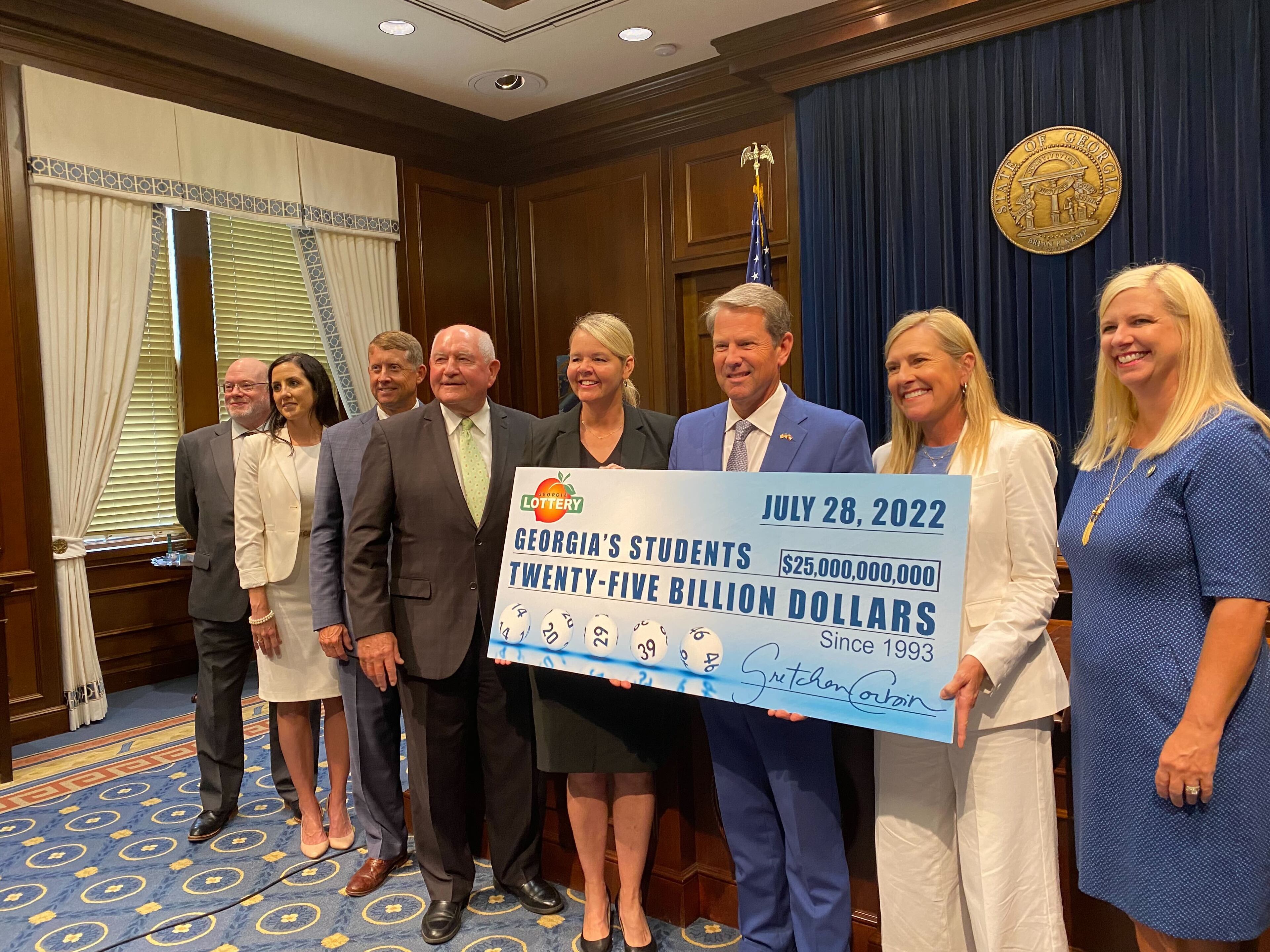AJC On Campus: Record lottery profits for HOPE, college student voting

The Georgia Lottery, which funds the popular HOPE scholarship and other educational programs, reported its most profitable first quarter in its nearly 30-year history.
That bit of news is just one item we highlight in this edition of AJC On Campus. We also take a look at student voting, an agreement aimed at helping technical college students who want to transfer plus new research from the University of Georgia on the political imbalance between renters and homeowners.
Climbing lottery profits
The lottery corporation transferred $389.9 million to the State Treasury’s Lottery for Education Account for July 1 to Sept. 30. That’s $25.1 million more than the first three months of last fiscal year, according to the state.
The lottery recently celebrated another milestone moment. In July, it hit $25 billion in revenue used to support HOPE scholarships for Georgia students to attend in-state colleges and also fund prekindergarten programs. More than 2 million students have benefited from the scholarship program.

“Our state’s HOPE Scholarship and Pre-K programs serve an essential role in educating the next generation, and this record-breaking quarter will ultimately benefit those students the most,” Gov. Brian Kemp said in a statement.
Getting out the campus vote
Several Georgia colleges received recognition for their efforts to boost student voting.
It comes as timely praise as the nation’s attention turns to Georgia and the potential impact of young voters on the Dec. 6 U.S. Senate runoff election.
Agnes Scott College, Columbus State University, Dalton State College, Georgia College & State University, Mercer University, Spelman College and the University of West Georgia were among 394 colleges nationwide touted as this year’s “Most Engaged Campuses for College Student Voting” by a nonprofit organization. Civic Nation’s ALL IN Campus Democracy Challenge is aimed at increasing voter participation among students.
“Social justice and activism are embedded in the fabric of who we are at Spelman College, through the culture, curricula and programs that are offered to help develop scholar-activists,” said Dr. Helene Gayle, Spelman’s president, in a statement. “We applaud the efforts and the extent to which our students participated in nonpartisan democratic engagement and exercised their right to vote.”
Georgia College cited a report showing more than three-quarters of its students voted in the 2020 presidential election, surpassing a national average of 66%. The college said it doesn’t yet have student voting numbers for the November midterm election.
New transfer path
The Technical College System of Georgia has a new partnership with a nonprofit, online university.
System officials said the pact with Western Governors University will give more educational options to graduates of its 22 colleges. The agreement will provide a “streamlined approach” to the university’s online courses for students looking to transfer, officials said.

“WGU’s flexible, online program offerings allow busy students the ability to pursue a degree on their time, helping to strengthen Georgia’s workforce,” said the system’s commissioner, Greg Dozier, in a written statement.
Research looks at renters
A new study by University of Georgia researchers examines just how few renters hold elected offices or government positions.
The study, titled “Who Represents the Renters?,” found that about 93% of the members of Congress, federal judges, mayors, city council members, state legislators and governors own a house.
That’s despite the fact that renters make up more than a third of the nation’s population.
Researchers also drilled down to the local level by focusing on 1,800 city council members and mayors in the country’s largest cities. More than 90% of those local officials are likely to be homeowners, they found.
Researchers said the lack of representation creates a disadvantage for renters as officials weigh policy matters that impact zoning and taxes.
If you have any higher education tips or thoughts, email higher education reporter Vanessa McCray at vanessa.mccray@ajc.com.



